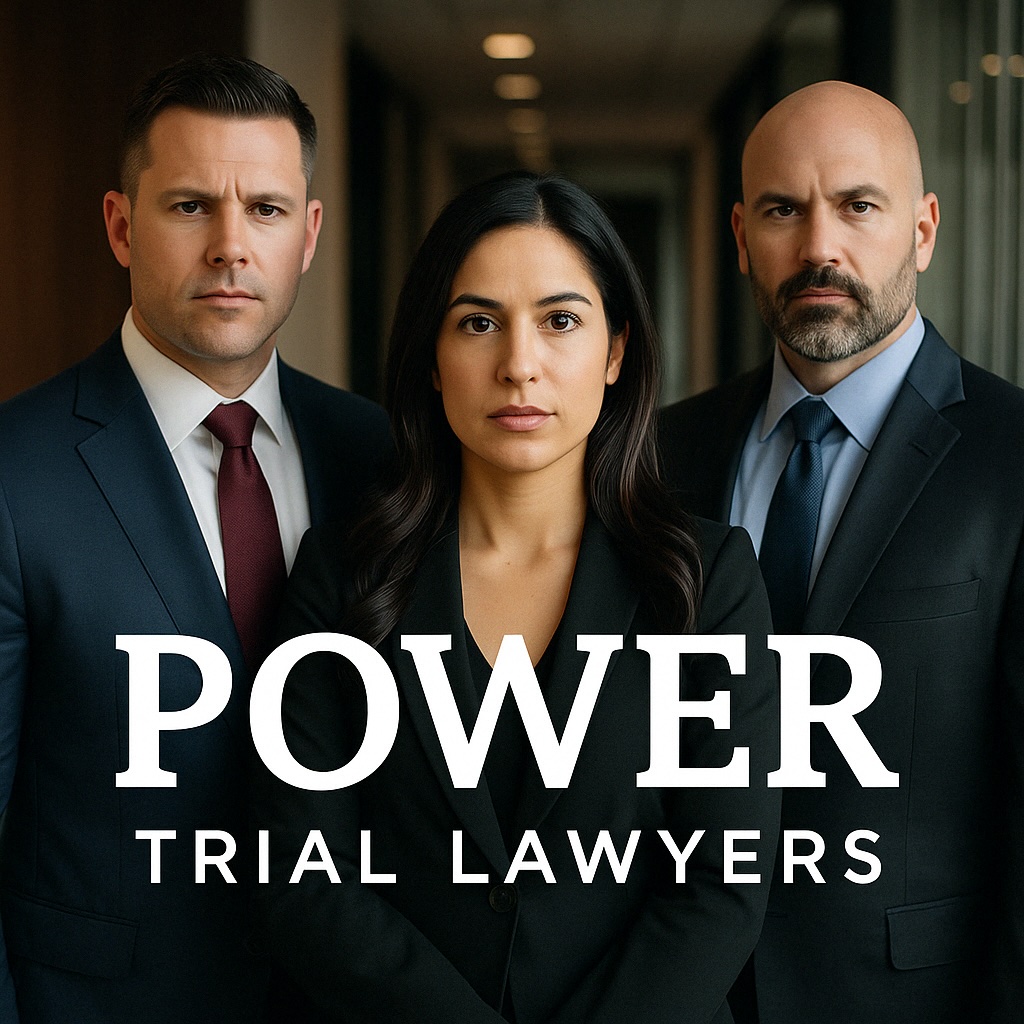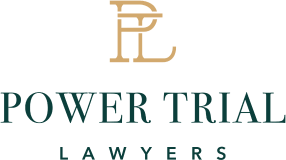- Free Consultation: (888) 808-2179 Tap Here to Call Us
People v. Briscoe (2024): A Landmark Decision for Youth Offenders Serving LWOP Sentences in California
INTRODUCTION — A Breakthrough in Youth Offender Parole Law
For years, California’s youth offender parole system under Penal Code § 3051 gave many young defendants a second chance—except one group: those sentenced to life without the possibility of parole (LWOP).
Now, the California Court of Appeal’s decision in People v. Briscoe (2024), case no. A167964 (Sep. 25, 2024), changes that landscape.
In Briscoe, the court ruled that youthful offenders sentenced to LWOP for acting as major participants with reckless indifference during a robbery or burglary murder are entitled to the same PC 3051 parole hearings available to others convicted under identical standards.
The decision builds on People v. Hardin (2024) 15 Cal.5th 834 and breathes new life into the promise of rehabilitation recognized in People v. Franklin (2016) 63 Cal.4th 261.
For families and defendants seeking assistance, Briscoe represents a decisive turning point.

CASE BACKGROUND — FROM A 1998 CRIME TO A 2024 REVERSAL
At age 21, Khyle Armando Briscoe participated in a 1998 home-invasion robbery in which his co-participant was killed during a struggle. A jury found Briscoe guilty of first-degree murder, robbery, and burglary, and it also found true a “special-circumstance” allegation under Penal Code § 190.2(d)—that he acted as a major participant in the underlying felonies with reckless indifference to human life.
That single finding mandated life without parole. Two decades later, Briscoe sought relief under PC 3051, requesting both a youth-offender parole hearing and a Franklin hearing to preserve mitigation evidence related to his youth.
The trial court denied his motion, citing Hardin’s general rejection of equal-protection claims. But the Court of Appeal reversed, finding that the Legislature’s framework drew an irrational distinction between identical conduct punished under two statutes—§ 190.2(d) and § 189(e)(3)—and that the exclusion violated equal protection.
THE LEGAL ISSUE — EQUAL PROTECTION UNDER PC 3051
Under PC 3051, most defendants who committed their controlling offense before age 26 may seek a parole hearing after serving 15, 20, or 25 years, depending on sentence length. But subdivision (h) explicitly excludes youth sentenced to LWOP who were over 18 at the time of the crime.
Briscoe challenged that exclusion on narrow but powerful grounds:
- Section 189(e)(3) (amended 2018) defines first-degree felony murder for non-killers who are major participants acting with reckless indifference—the same standard used in § 190.2(d) for special-circumstance murder.
- Yet those sentenced under § 189(e)(3) qualify for parole under § 3051, while those under § 190.2(d) do not.
The Court of Appeal held this discrepancy irrational and unconstitutional. When two offenders engage in identical conduct and one may seek parole while the other is permanently excluded, the law violates the Equal Protection Clauseof the California Constitution.
RELATIONSHIP TO PEOPLE v. HARDIN (2024)
In Hardin, the California Supreme Court upheld PC 3051’s exclusion of youth LWOP offenders generally, reasoning that the Legislature could rationally reserve parole eligibility for less culpable crimes.
But the Court also expressly left open “other as-applied challenges” where the underlying conduct or statutory scheme produced irrational disparities.
Briscoe is exactly that scenario. Because Hardin did not address the overlap between § 189(e)(3) and § 190.2(d), the Court of Appeal used this narrow factual window to extend PC 3051 eligibility to a new group of youth offenders.
RELATIONSHIP TO PEOPLE v. FRANKLIN (2016)
The decision also restores access to Franklin hearings for youth LWOP offenders now covered under Briscoe.
A Franklin hearing allows an incarcerated person who was under 26 at the time of the offense to present evidence of youth-related mitigation—family history, immaturity, cognitive development, post-offense growth—so the Board of Parole Hearings can later consider those factors.
Because Briscoe orders both a 3051 parole hearing and a Franklin proceeding, it ensures these defendants will have the same opportunity for meaningful review and documentation of their youthful characteristics.
THE COURT’S ANALYSIS — IDENTICAL CONDUCT, UNEQUAL CONSEQUENCES
The Court emphasized that both statutes (§ 189(e)(3) and § 190.2(d)) require proof that the defendant was a major participant who acted with reckless indifference to human life.
Both typically involve the same enumerated felonies—robbery or burglary—under § 189(a).
Because the culpability is identical, the distinction in parole eligibility could not be justified. The Court wrote that this discrepancy “does not reflect a thoughtful effort to distinguish between different offenses” but rather “an unconsidered result of the interaction between the relevant statutes.”
As a result, the court reformed § 3051 to include this class of offenders and remanded the case for a Franklin hearing and parole-eligibility proceedings.
WHO NOW QUALIFIES FOR RELIEF UNDER BRISCOE
If you or your loved one meet the following criteria, Briscoe may open the door to a parole opportunity:
- Age at offense: Under 26 years old.
- Sentence: Life without parole under PC § 190.2(d).
- Offense: Murder committed during a robbery or burglary where the defendant was a major participant and acted with reckless indifference.
- No death penalty imposed.
These individuals can now assert an equal-protection claim and request both a Franklin hearing and a 3051 youth-offender parole hearing.
PRACTICAL PATHWAYS TO RELIEF
The ruling does not automatically grant release—but it creates a pathway.
Typical procedural steps include:
- Filing a motion in the sentencing court seeking a Franklin hearing and inclusion under PC 3051.
- Citing People v. Briscoe (2024) as controlling authority for youth sentenced under § 190.2(d).
- Documenting evidence of youth factors—psychological evaluations, education records, disciplinary history, rehabilitation programming, and personal growth.
- If denied, pursuing appellate or habeas relief asserting an equal-protection violation.
Every case requires meticulous legal strategy. Power Trial Lawyers assists families statewide with assessing eligibility, drafting petitions, and preparing compelling mitigation packages.
WHY THIS DECISION MATTERS
1. Recognition of Rehabilitation
The ruling acknowledges that young adults—even those involved in serious crimes—retain the capacity for growth and redemption.
2. Correction of Legislative Oversight
The Legislature’s 2017 expansion of § 3051 predated the 2018 amendment to § 189(e)(3). Briscoe corrects the unintended gap that left identical offenders treated differently.
3. Judicial Endorsement of Hope
By mandating a Franklin and parole hearing, the court confirmed that life without parole should not always mean life without hope—especially for those who offended before full adulthood.
WHY CHOOSE POWER TRIAL LAWYERS
At Power Trial Lawyers, we handle criminal appeals, Writ of Habeas Corpus, Franklin hearings, and youth-offender parole litigation. Our appellate team has successfully challenged unjust sentences across California and restored hope to clients serving extreme terms.
We understand both the constitutional principles and the practical mechanics of bringing equal-protection and PC 3051 claims. From reviewing trial transcripts to preparing psychological evidence, our firm provides full-spectrum representation.
If your loved one was under 26 and sentenced to LWOP for a special-circumstance robbery or burglary murder, call us today.
(888) 808-2179 | PowerTrialLawyers.com
People v. Briscoe (2024) stands as a milestone in California’s evolving view of youth culpability.
It reinforces that fairness and rehabilitation must guide sentencing policy, not rigid technical distinctions.
For the first time, young adults sentenced to LWOP under § 190.2(d) have a recognized constitutional path toward parole consideration and personal redemption.
If you or someone you love may qualify, contact Power Trial Lawyers to discuss eligibility for a Franklin or 3051 hearing today.
Frequently Asked Questions About People v. Briscoe (2024) and Youth LWOP Parole Relief
The California Court of Appeal held that youth offenders sentenced to life without parole (LWOP) for acting as major participants with reckless indifference during a robbery or burglary murder are entitled to a PC 3051 parole hearing. The court found no rational basis for treating those sentenced under Penal Code § 190.2(d) differently from offenders sentenced under § 189(e)(3) for identical conduct. In short, Briscoe created a new pathway for young adults (under 26 at the time of the crime) to seek parole and a Franklin hearing to document youth-related mitigation.
Eligible individuals were under 26 years old when the offense occurred and received LWOP under § 190.2(d) for a murder committed during a robbery or burglary. Because Briscoe recognizes that these defendants meet the same culpability standard as those under § 189(e)(3), they can petition for both a Franklin hearing and a PC 3051 youth-offender parole hearing. Families should consult appellate counsel immediately to evaluate eligibility and timing.
Hardin upheld § 3051’s exclusion of youth LWOP offenders in general but explicitly left open as-applied equal-protection challenges. Briscoe is the first published case to seize that opening. It applies only where the special-circumstance sentence stems from conduct identical to § 189(e)(3) felony-murder—meaning the offender was a major participant acting with reckless indifference. Together, the two cases outline when equal-protection arguments may succeed.
Under Penal Code § 3051, qualifying inmates who committed their controlling offense before age 26 receive a parole hearing after 15–25 years of incarceration. The Board of Parole Hearings must give “great weight” to evidence of youthfulness, maturity, and rehabilitation. After Briscoe, certain youth LWOP defendants can finally request this opportunity, which was previously barred to them.
A Franklin hearing (from People v. Franklin (2016) 63 Cal.4th 261) lets the defense present mitigating evidence about the offender’s youth—family background, cognitive development, trauma, education, and rehabilitation—so it becomes part of the record for future parole review. Briscoe guarantees that newly eligible youth LWOP offenders can preserve that crucial evidence for later PC 3051 consideration.
Yes, because it interprets existing constitutional and statutory provisions rather than creating a new statute. In practice, anyone currently serving LWOP under § 190.2(d) for a robbery- or burglary-based special circumstance should consult counsel about filing a petition or motion for Franklin and 3051 relief. Appellate courts are already applying Briscoe to pending and future cases.
Your attorney must file a motion or petition in the sentencing court citing People v. Briscoe (2024) as controlling authority. The filing should outline eligibility (age at offense, statutory basis for LWOP, and type of felony) and request both hearings. If denied, your lawyer can seek appellate or habeas review. Power Trial Lawyers assists clients statewide through every stage—from eligibility assessment to evidence collection and hearing preparation.
Effective evidence includes psychological evaluations, educational records, prison program certificates, disciplinary history, personal letters, and proof of rehabilitation. These materials show maturity and growth—factors the Board must weigh at a future youth-offender parole hearing. Our firm compiles professional reports and testimony tailored to each client’s development and potential for reentry.
Equal protection requires that similarly situated individuals receive similar treatment. Briscoe recognized that offenders under § 189(e)(3) and § 190.2(d) commit identical conduct but were treated differently regarding parole eligibility—an unconstitutional disparity. The ruling extends fairness to those young adults previously excluded solely by technical labeling.
Post-conviction litigation under Briscoe demands deep knowledge of PC 3051, § 190.2(d), and § 189(e)(3), as well as appellate procedure. Power Trial Lawyers has a proven record in criminal appeals, Franklin hearings, Penal Code 1172.75 Resentencing, and equal-protection claims. We craft persuasive legal arguments and assemble the mitigation evidence needed to secure a parole opportunity. Call (888) 808-2179 or visit PowerTrialLawyers.com for a confidential consultation.
Yes. If a prior petition or motion was denied because Hardin foreclosed equal-protection arguments, Briscoe creates new grounds to revisit that denial. Counsel can move to reopen or file a new habeas petition citing the 2024 decision as intervening authority.
If granted, the inmate will eventually appear before the Board of Parole Hearings, which assesses readiness for release using evidence of growth, rehabilitation, and low risk. Preparing that record early—through a Franklin hearing and ongoing program participation—dramatically increases success rates. Our firm continues representation through the parole stage to ensure every opportunity is maximized.
It recognizes that young adults can change and that sentencing must reflect the realities of adolescent development. By aligning § 190.2(d) with § 189(e)(3), Briscoe restores consistency and hope to hundreds of inmates who committed serious crimes before full maturity. It’s a powerful affirmation that redemption—and a path to freedom—should never be foreclosed solely by a statutory technicality.


















